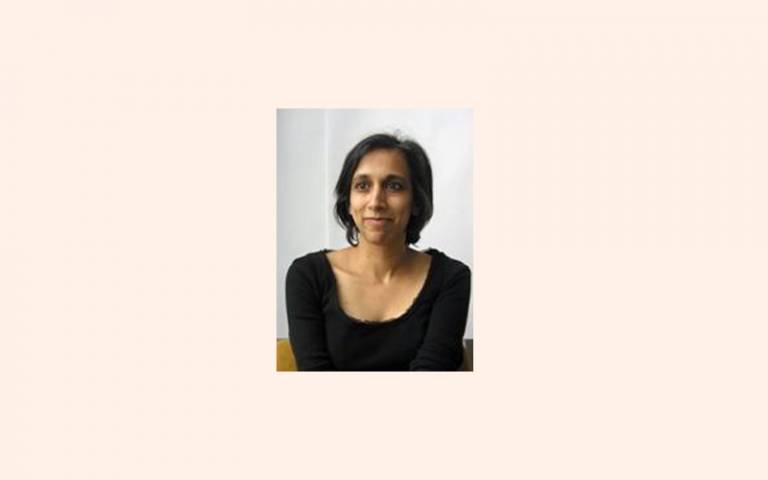Spotlight on... Nish Chaturvedi
27 May 2021
This month we meet Nish Chaturvedi, Professor of Clinical Epidemiology and Director of the MRC Unit for Lifelong Health and Ageing at UCL. Here, Nish talks to us about leading one of the UK government's National Core Studies to investigate Long COVID.

What is your role and what does it involve?
I am a Professor of Clinical Epidemiology and Director of the MRC Unit for Lifelong Health and Ageing at UCL. The Unit hosts three major studies: the oldest British birth cohort, the MRC National Survey of Health and Development, the largest tri-ethnic cohort in the UK, Southall And Brent REvisited (SABRE) and LINKAGE-Camden. The outputs from these studies have advanced our understanding of life course influences on health and social wellbeing and ethnic differences in cardiovascular risk. The goal of our research is to postpone functional decline, enhance resilience and promote wellbeing in older age. I also lead the COVID-19 Longitudinal Health and Wellbeing Programme, a National Core Study (NCS) set up in October 2020 by Sir Patrick Vallance, UK Chief Scientific Adviser, as part of the UK’s response to the COVID-19 pandemic.
How long have you been at UCL and what was your previous role?
I was appointed chair in clinical epidemiology in the Institute of Cardiovascular Sciences at UCL in 2014. My previous role was chair of clinical epidemiology in the National Heart & Lung Institute at Imperial College London from 2000. Prior to my Imperial appointment, I was a post-doctoral researcher at the Department of Epidemiology at UCL.
What working achievement/initiative are you most proud of?
The SABRE tri-ethnic cohort is where it all began. We performed echocardiography, ambulatory blood pressure monitoring, and retinal photography – investigations that, 30 years ago, were highly challenging and not undertaken in such large numbers in the UK. This experience fostered my continued interest in the deep, dense phenotyping of cohorts, now increasingly standard today. It was also the start of some valuable and impactful collaborations in the Caribbean, Africa and South Asia.
Tell us about a project you’re working on now that’s top of your to-do list?
The COVID-19 Longitudinal Health and Wellbeing NCS is a UK Research and Innovation (UKRI) funded longitudinal study that aims to understand the health, social and economic impacts of the COVID-19 pandemic by uniting established population cohorts and national anonymised electronic health records to inform policy. It is one of six National Core Studies that were created focussing on key areas in which the UK needed to rapidly increase research scale to respond to the near term strategic, policy and operational needs. Our research themes include vaccination, serology, mental health, healthcare disruption, society and health, UK longitudinal Linkage collaboration and the NIHR-UKRI funded long-COVID, Convalescence (Coronavirus post-acute long-term effects: constructing an evidence base) Study. Convalescence will define long-COVID, its determinants and health, social and economic consequences to improve diagnosis, management and support. This work is a multi-disciplinary collaboration between many universities and the National Institute for Health and Care Excellence (NICE).
What other piece of research outside of your own subject area interests you?
The great thing about epidemiology is that you can choose to work across a range of topics. I’ve spanned diabetes, cardiovascular disease, infectious disease, and ageing, employing observational and interventional study designs in my career. I began my epidemiological career at UCL, so appreciated the importance of understanding the interplay between socioeconomic and health factors at this early stage. The next big thing that interests me is to bring together biomedical, bioengineering and social science to address current major public health challenges.
Name one thing that makes you feel proud to work at UCL?
Over 2 million people in the UK are currently participants in population-based cohort studies and the majority of these cohorts are hosted by or have links to UCL. This collaborative research has created an internationally recognised focus of human research enabling UCL to integrate the highest quality basic, clinical and social science to extend a healthy lifespan and enhance wellbeing.
 Close
Close

